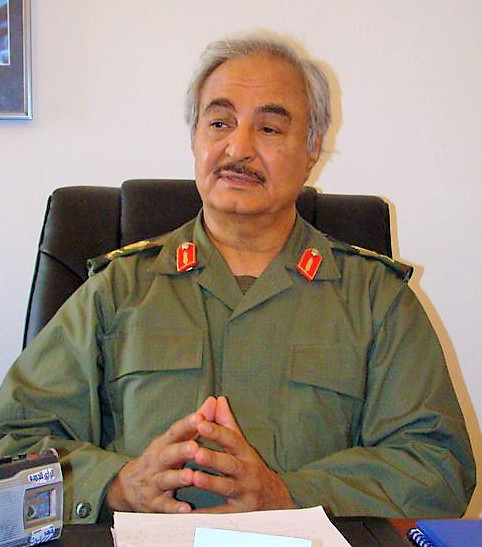
Image Credit
Since 2015, the Government of National Accord (GNA) behind Faiez Mustapha Sarrej in Tripoli and the Libyan National Army (LNA) behind Khalifa Haftar in Benghazi have been engaged in a civil war in Libya. While the GNA is the UN recognized government of Libya, Haftar is legitimized by singular external states, most notably the United Arab Emirates, Saudi Arabia, and Egypt. None of these countries have sent troops into Libya to fight for Haftar, but they have sent military weaponry, including fighter jets, helicopters, and armored vehicles. Since April 2019, Haftar’s forces have been laying siege on Tripoli in an effort to take the city and become the government of Libya. On September 25th, during the 74th UN General Assembly Debate, GNA President Faiez Mustapha Sarrej explained that Haftar’s forces have deliberately bombed hospitals, airports, and civilian neighborhoods. President Faiez has repeatedly called upon the UN Security Council to do something to stop the assault on Tripoli that has led to over 1,100 dead and 100,000 displaced.
Both France and Italy have attempted and failed to end the civil war, but now, Germany has taken the leading role in this endeavor. German leaders fear that this conflict will spread beyond Tripoli, potentially creating another migrant crisis and destabilizing other African countries. Unlike France and Italy, Germany is seen as an impartial actor because it has no economic ties to Libya. Germany has expressed a desire to bring the major actors – President Faiez, Haftar, Egypt, the UAE, Qatar, and Turkey – to Berlin to discuss unification. Turkey and the UAE have proven reluctant to come to the negotiating table. It remains unclear if Germany will have the leverage to stop Egypt, the UAE, and Saudi Arabia from backing and supplying Haftar.
Likewise, Haftar is unlikely to acquiesce to any agreement that make him the legitimate leader of the new Libyan government. This stems from his belief that he is the logical successor to Gaddafi due to his position as a commander of Eastern Rebel Forces in 2011. This mindset has led to Haftar spending years refusing to attend any conference whose aim is to pacify and unite Libya under the GNA. However, Haftar, after months of conflict trying to take Tripoli, has agreed to start a dialogue.
The United States is involved in Libya and has supported the GNA publicly. The US has not, though, taken direct action against Haftar, instead choosing to only combat ISIS and ISIS affiliates in the south of the country through airstrikes. If the US were to aid Germany in these unification talks then perhaps the US could utilize its economic leverage over the external actors. Afterall, the US has provided and continues to provide $1.3 billion annually in military aid to Egypt since 1987. Under the Obama administration the US sold $112 billion worth of military equipment to Saudi Arabia and under Trump a new deal worth $110 billion over 10 years was signed in 2018.
These massive economic ties would provide leverage that Germany simply does not have to pressure these states to no longer support Haftar. The US has a duty to stand alongside its ally Germany in these talks and to prevent further destabilization that can affect its allies in Africa and Europe. However, the Trump administration has not expressed any desire to attend these talks, meaning it will be up to Germany to convince Haftar and his international backers to prevent further conflict. Time will tell if Haftar’s sudden change in tone over starting a dialogue will continue or bring about lasting change.
Gerry Moss is a student fellow at the Center for Security Policy Studies. He is a second-year graduate student in the Middle East and Islamic Studies MA at George Mason University.



